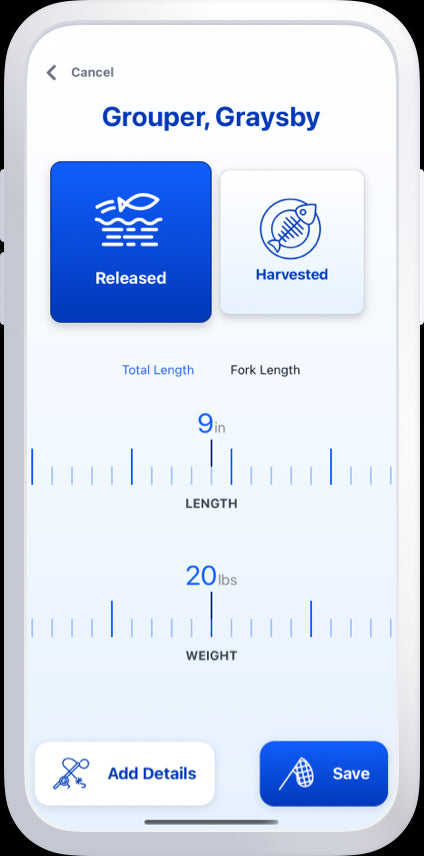Have you ever heard of the Fish Rules App?
Posted by CASSIE SMITTY

To stay on top of major regulations refer to FWC . Another cool tool is the Fish Rules App
Understanding Fishing Regulations in Florida: A Guide for AnglersAs an angler in Florida, understanding fishing regulations is essential to ensure a sustainable fishing experience. In this blog, we will delve into the intricacies of fishing regulations in the Sunshine State, exploring key aspects such as bag limits, size restrictions, protected species, and seasons. Whether you're a seasoned angler or new to fishing, this guide will provide you with valuable insights to help you navigate the waters while adhering to the fishing regulations in Florida.

Florida boasts a diverse array of fish species, making it a popular destination for anglers worldwide. However, responsible fishing practices are crucial to maintaining healthy fish populations. To achieve this, the Florida Fish and Wildlife Conservation Commission (FWC) has established fishing regulations. These regulations encompass various aspects, including bag limits, which determine the maximum number of fish an angler can catch and keep in a single day. Size restrictions also play a significant role, ensuring that fish reach maturity and have the opportunity to reproduce before being harvested.
While angling can be a thrilling pursuit, it's essential to prioritize conservation. Catch and release practices are highly encouraged in Florida, allowing anglers to enjoy the sport while minimizing the impact on fish populations. To legally fish in Florida, anglers must obtain the appropriate fishing licenses and permits. These licenses contribute to conservation efforts and fund research and initiatives aimed at preserving the state's marine ecosystems. Additionally, anglers must be aware of restricted areas, including marine protected areas (MPAs), which are designated to safeguard critical habitats and vulnerable species.
Florida faces challenges from invasive species that pose a threat to the native ecosystem. Lionfish, for example, have rapidly multiplied and become a significant concern. To combat their proliferation, lionfish hunting is encouraged, with special tournaments held throughout the year. These tournaments not only provide an opportunity for anglers to engage in the thrill of competition but also serve as a vital conservation measure. As you plan your fishing trips, consult the Florida fishing calendar to optimize your chances of success. Consider hiring professional fishing guides who possess local knowledge and expertise.
Proper fish identification is crucial to complying with fishing regulations in Florida. Each species may have specific regulations regarding bag limits, size restrictions, and closed seasons. For example, red snapper fishing has specific regulations due to the species' importance and vulnerability. Tarpon, known for their incredible strength, are highly sought after by anglers but have strict catch and release regulations. Similarly, Goliath grouper fishing is regulated to protect this iconic species. It's essential to stay informed about ongoing conservation efforts and contribute to safeguarding the future of fishing in Florida.
Navigating fishing regulations in Florida is key to preserving the state's marine ecosystems and ensuring the longevity of angling opportunities. By adhering to bag limits, size restrictions, and catch and release practices, anglers can contribute to sustainable fishing practices. Acquiring the necessary fishing licenses and permits demonstrates a commitment to conservation and supports ongoing research and initiatives. Understanding the specific regulations for protected species and restricted areas is vital for maintaining a healthy ecosystem. With awareness of invasive species, participation in fishing tournaments, and utilizing fishing guides, anglers can make the most of their fishing experiences in the Sunshine State while protecting its natural resources.

